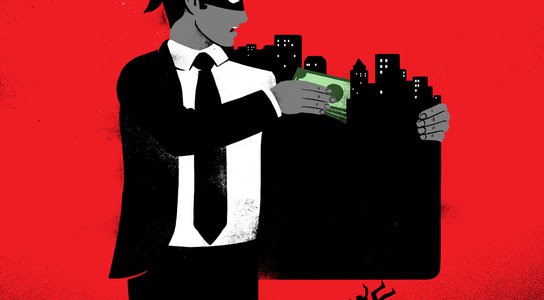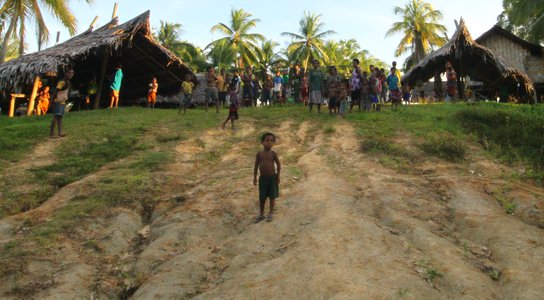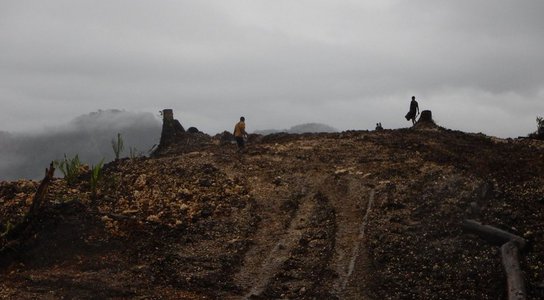Corruption is a daily topic of conversation in Papua New Guinea. Often described as “an island of gold floating on a sea of oil” the country is a treasure trove of natural resources, but citizens don’t see the profits invested in much-needed schools, hospitals and roads. Instead as much as 7% of the country’s GDP is reportedly siphoned out of the country illegally.
Global Witness went undercover in Papua New Guinea (PNG), capturing what we saw on hidden camera. Our meeting with two partners of a prominent law firm proved enlightening.
Both men – one Australian, one from PNG – responded to our questions about how to pay a seven-digit bribe to a PNG minister. They described different ways of funneling money out of the country illegally, avoiding detection.
We handed this footage to prime time Australian news show Dateline and major newspapers including Melbourne’s The Age and the Sydney Morning Herald.
"Australians should harbour no illusions that corruption is someone else's problem", said Rick Jacobsen, a campaigner at Global Witness. "We believe that Australia is at the epicentre of regional corruption and money laundering that is harming ordinary Australians and the citizens of impoverished neighbours like Papua New Guinea alike."
In Australia alone, Federal Police estimate that each year around $200 million of corrupt funding is laundered from Papua New Guinea.
The ability to move corrupt funds overseas is a large part of what makes grand corruption possible - it drains poor countries of funds, props up dictatorships and fuels conflicts.
Global Witness is exposing the professions that can make that possible – the lawyers, bankers, accountants and estate agents who assist in moving money across borders and secret accounts, through anonymous companies and into assets. These are corruption’s lesser-known abettors – some professionals at the heart of our financial system, who take advantage of weak laws and enforcement who help dirty money end up in upmarket neighbourhoods and designer goods.
Governments have a duty to act, starting with full investigations and appropriate sanctions, and leading to regulatory reforms that ensure that the professionals that turn the cogs of our financial centres are kept in line.
Global Witness is campaigning internationally for lawyers, real estate agents and other professionals in high risk sectors and jurisdictions to be bound to ‘know your customer’ requirements, meaning they actively look out for and report suspicious activity. These professions should also be subject to laws and regulations that ensure they aren’t complicit in the movement of corrupt money, and are held to account if they do.
These revelations have elicited strong responses in Papua New Guinea, from the lawyers caught on camera, the PNG Law Society, and the Office of the Prime Minister.
You might also like
-
Campaign Corruption and money laundering
Ill-gotten gains don’t disappear by themselves. Dictators, warlords and other criminals need ways to hide their identity and move dirty cash around the world.
-
Country page Papua New Guinea
The Pacific nation of Papua New Guinea (PNG) is the poorest country in Asia Pacific, despite being rich in natural resources.
-
Briefing Papua New Guinea – One of the Biggest Land Grabs in Modern History
Documenting the government’s failed response to one of the largest land grabs in modern history.